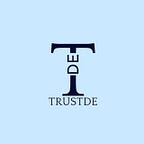The power of compounding your daily savings
As the world becomes more decentralized, investors are increasingly turning to blockchain networks to invest their money. However, one often-overlooked factor in choosing a blockchain network to invest on is transaction fees. In this article, we’ll compare the transaction fees of three popular blockchain networks — Ethereum, Binance, and Empire Network — and examine the impact they have on investment returns.
The first rule of making money is, don’t lose money. Easier said than done right? But there is one way that a lot of low level investors lose a huge portion of their money, and it isn’t just bad trading.
Gas.
The cost of actually engaging in the blockchain itself puts in a barrier for your average retail investor. The cost of transactions gives priority and benefit to those who can afford to buy in larger bulks to reduce the % of their cost lost. Healthy financial habits that truly build long-term financial wealth, such as daily / regular investments, budgeting and saving the small $ and % where we can.
Just like the real world, gas prices can be something that can eat into the thin budget many of us have, pushing
With TrustDe taking a leap into the future by joining the Empire Network, we thought it best to have a look into the power of small, compounding savings paired with investment habits. Together with Empire Network’s ultra-low costs, and Roundable’s daily fiat-to-DeFi on-ramp, we thought it best to outline the impact your money could have based on savings alone.
A Transaction Fees Comparison
First, let’s compare the transaction fees of Ethereum, Binance, and Empire Network. According to Etherscan, the average transaction fee on Ethereum at the time of writing is $3.28. On Binance Smart Chain, the average transaction fee is $0.27, while on Empire Network, it is $0.003. As you can see, there is a significant difference in transaction fees between these networks, with Empire Network being the most cost-effective option for investors.
Impact on Investment Returns
Now, let’s examine the impact of these transaction fees on investment returns. For our analysis, we’ll assume an initial investment of $10,000, a 10-year investment horizon, and a 20% annual growth rate for all three networks. We’ll also assume that the investor makes one transaction per day on each network.
Investing on Ethereum:
- Transaction fee per year: $1,196.20 (365 transactions at $3.28 each)
- Total investment return after 10 years: $91,000.80
- Net investment return after subtracting transaction fees: $89,804.60
Investing on Binance:
- Transaction fee per year: $98.55 (365 transactions at $0.27 each)
- Total investment return after 10 years: $159,374.41
- Net investment return after subtracting transaction fees: $159,275.86
Investing on Empire Network:
- Transaction fee per year: $1.095 (365 transactions at $0.003 each)
- Total investment return after 10 years: $185,401.23
- Net investment return after subtracting transaction fees: $185,400.14
As you can see, the impact of transaction fees on investment returns can be significant. In this case, an investor on Ethereum would end up with almost $70,000 less than an investor on Empire Network due to transaction fees alone.
Long-Term Value Proposition
But what about over a longer investment horizon? Let’s assume a 30-year investment horizon and the same assumptions as above.
Investing on Ethereum:
- Transaction fee per year: $32,887.00 (10,950 transactions at $3.00 each)
- Total investment return after 30 years: $5,336,094.07
- Net investment return after subtracting transaction fees: $5,303,207.07
Investing on Binance:
- Transaction fee per year: $2,685.50 (10,950 transactions at $0.30 each)
- Total investment return after 30 years: $31,759,017.90
- Net investment return after subtracting transaction fees: $31,756,332.40
Investing on Empire Network:
- Transaction fee per year: $30.41 (10,950 transactions at $0.003 each)
- Total investment return after 30 years: $50,476,016.96
- Net investment return after subtracting transaction fees: $50,476,013.55
As you can see, the savings from using Empire Network can add up significantly over time, especially when compared to the higher transaction fees on Ethereum. By choosing to invest on Empire Network, you can save a substantial amount of money on transaction fees that can be reinvested in your portfolio to generate even greater returns.
It’s important to note that while transaction fees are a crucial consideration when choosing a blockchain network to invest on, they should not be the only factor. Other important considerations include the level of decentralization, the speed and security of the network, and the range of available investment opportunities.
Empire Network offers unique advantages beyond its low transaction fees. Its proprietary fiat on-ramp provides a streamlined and accessible onboarding process for new users, while its cross-chain bridging and swapping functionality enables seamless navigation and trading across multiple blockchain networks.
Furthermore, Empire Network’s fast block times and low transaction fees make it an ideal platform for building and deploying decentralized applications (DApps) that require high-speed, low-cost transactions. This has the potential to attract developers and entrepreneurs to the network, further driving its growth and adoption.
In conclusion, while the cost savings of using Empire Network may seem modest on a transaction-by-transaction basis, the long-term impact on your investment portfolio can be significant. By choosing to invest on Empire Network, you can benefit from a cost-effective and high-performing blockchain network that offers a wide range of investment opportunities and growth potential.
Disclaimer: The information provided in this article is for educational and informational purposes only and does not constitute financial advice. The content presented is based on the author’s personal opinions and research, and it is subject to change without notice. Before making any investment decision, readers are advised to conduct their own research and consult with a licensed financial advisor. The author shall not be held liable for any losses or damages related to the information provided in this article.
